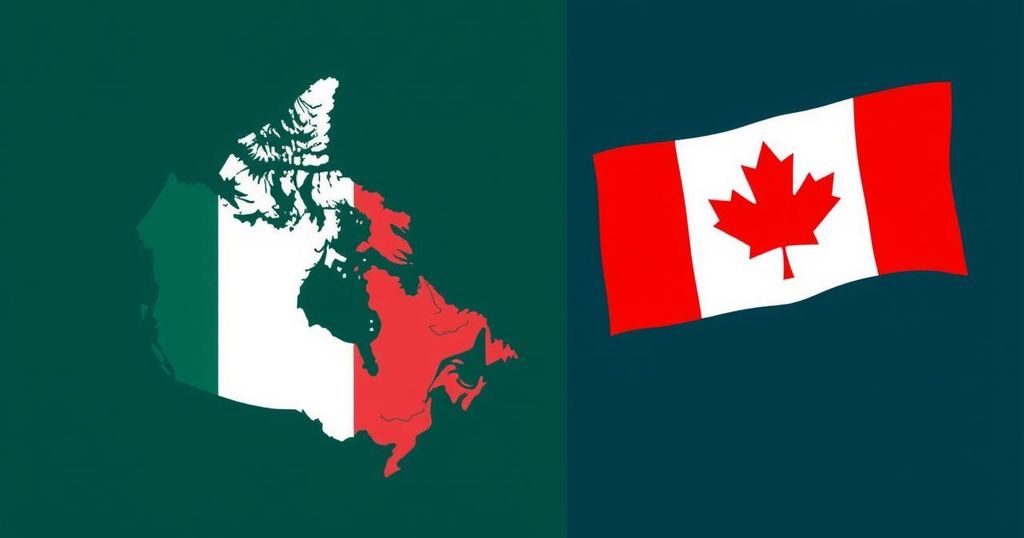Donald Trump’s proposed tariffs on Mexico, Canada, and China threaten to raise consumer prices and jeopardize the USMCA trade agreement. Economic experts caution that these tariffs may exacerbate inflation and discord with major trading partners, while Canadian and Mexican leaders advocate for cooperation instead of confrontation.
Former President Donald Trump’s recent announcement regarding the imposition of tariffs targeting Mexico, Canada, and China has raised considerable concerns among economists and trade experts. He suggested a 25% tariff on all products imported from Canada and Mexico, linking it to the management of illegal immigration and drug trafficking. Additionally, he plans to levy a 10% tariff on products from China. As Mexico, Canada, and China represent America’s top trading partners, these tariffs could significantly increase consumer prices across various sectors, including automobiles, clothing, and oil, potentially undermining the United States-Mexico-Canada Agreement (USMCA) established in 2020. Experts like Raymond Robertson noted that such a strategy may not achieve the desired results due to the familiarity of other countries with Trump’s tactics from his previous term. They warn that Trump’s approach may lead to increased prices for American consumers and exacerbate existing trade tensions, ultimately contradicting his campaign’s anti-inflation promises. Canadian Prime Minister Justin Trudeau and Mexico’s President Claudia Sheinbaum have both responded critically, emphasizing that cooperation rather than tariffs is necessary to address pressing issues.
The USMCA, which succeeded the North American Free Trade Agreement (NAFTA), was a significant accomplishment of Donald Trump’s administration, facilitating mostly duty-free trade between the U.S., Canada, and Mexico. Trump’s recent tariff threats have raised questions about the stability of this agreement. Following the principles established in USMCA, any such actions could trigger a trade war that disrupts longstanding economic relations. As trade relationships evolve, the implications of these tariffs extend beyond immediate financial burdens to the potential for long-term shifts in international trade alliances.
In conclusion, the introduction of tariffs proposed by former President Trump could have far-reaching consequences for the U.S. economy, exacerbating inflation and threatening established trade relationships under the USMCA. The economic risks, coupled with diplomatic tensions from neighboring countries, underscore the complexities involved in trade negotiations. Experts advocate for collaborative solutions over punitive measures to effectively tackle migration and drug issues while maintaining favorable trade relations.
Original Source: abcnews.go.com






